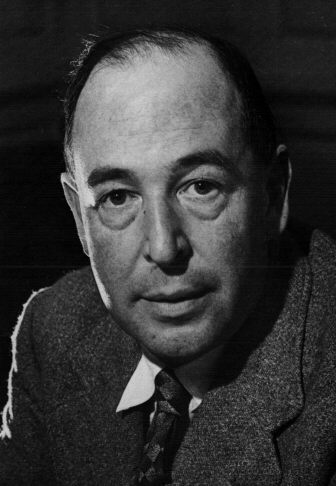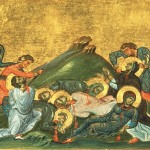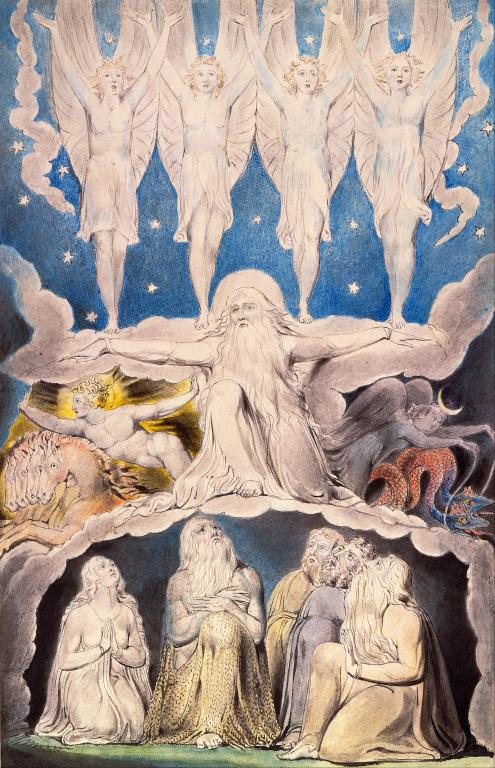David Russell Mosley
Ordinary Time
13th Sunday after Trinity
The Edge of Elfland
Hudson, New Hampshire
Dear Friends and Family,
As many of you know I have, over the last few years, become particularly interested in things like Catholic Social Teaching, localism, agrarianism, some aspects of the artisan movement (at least insofar as it represents a return to making things ourselves and usually by hand or using less mechanized means of production), etc., in short that I have become interested in distributism. This is much to the chagrin of some I know, but all I can really say is that it is my faith that has led me here. I don’t say this to judge the faith of those who have not come to at least similar ideas (I know many committed Christian socialists with whom I agree on several issues as well as many committed Christian capitalists with whom I agree on several issues), but just to say that my interest and increasing commitment to the ideals of subsidiarity and solidarity are an outflow of my faith and study. Now that preamble out of the way, I want to talk about distributism in C. S. Lewis.
I am not, for certain, the first to connect Lewis to distributism and what I write today is merely a first blush, an introduction based on passages that have always stuck with me and my annual re-read of Lewis’ Cosmic Trilogy. Some others on this subject can be found here, “Was C.S. Lewis a Neo-Liberal“; and here, The Scientifiction Novels of C.S. Lewis: Space and Time in the Ransom Stories.
I have finally gotten to That Hideous Strength in my Cosmic Trilogy re-read and have to say that it is increasingly becoming one of my favourites. Perhaps it’s that I’ve loved Arthurian legend for a long time now and Lewis gives me more of that; perhaps it’s the way Lewis was able to predict and counter the transhumanism of today; perhaps it’s that it is a fairy-tale for adults and I am an adult who loves fairy-tales. Whichever, or whichever combination, it may be, as I began to re-read this book I came across a passage the shocked me for I had forgotten about it. Towards the beginning of the book one of the somewhat unwilling protagonists of the story, Mark Studdock, is learning some uncomfortable truths about how he got his fellowship at Bracton College. As it turns out, an old colleague of his, Arthur Denniston nearly got the position. However, Curry, the Sub-Warden of the College notes that Denniston ultimately would not be a good fit.
“‘Yes,’ continued Curry, passing another train of thought. ‘One can see now that Denniston would never have done. Most emphatically not. A brilliant man at that time, of course, but he seems to have gone quite off the rails since then with all his Distributivism and what not. They tell me he is likely to end up in a monastery'” (17)
While the final sentence seems untrue given that Denniston is married with a child on the way, as we later find out, it is fascinating that even the Bracton group would not have liked Denniston for his ideas concerning labor, wages, food, etc. Of course, this passage should not have shocked me. I myself have preached a sermon where I quoted at length a later passage in the book where the resident skeptic in the group for good notes that all they seem to have done being not much more than “‘feeding pigs and raising some very decent vegetables'” (368). So, Lewis seems to have been a proponent of distributism like Tolkien, both of whom, of course, were indebted to G. K. Chesterton one of the founders, if you will, of the movement. Lewis’ distributism, however, becomes even less surprising when one considers the third chapter in part 3 of Mere Christianity, “Social Morality”.
In this chapter Lewis begins talking about a society which is based on the golden rule, “do as you would be done by” as he puts it. If you’ll allow me, I will quote at length a few passages from this chapter. In the first, Lewis is writing what he thinks the appropriate role of the Church in all this:
“People say, ‘The Church ought to give us a lead.’ This is true if they man it in the right way, but false if they mean it in the wrong way. By the Church they ought to mean the whole body of practising Christians. And when they say that the Church should give us a lead, they ought to mean that some Christians––those who happen to have the right talents––should be economists and statesmen, and that all economists and statesmen should be Christians, and that their whole efforts in politics and economics should be directed to putting ‘Do as you would be done by’ into action” (83).
In this first passage, Lewis is arguing against the notion that bringing about a Christian society ought to lay solely or even primarily (insofar as economics and politics are concerned) in the hands of priests and bishops (or whatever you may call your clergy). Instead Christian novelists ought to write novels, Christian economists ought to work on the economy, etc. This isn’t to say that our clergy or lay theologians ought to have no voice in this (for who else would provide the moral, theological, and philosophical framework on which our Christian society is to be built?) but that there’s ought not to be the only or final voice, that we need people not split in the interests or vocations but singularly focused.
Lewis goes on to argue for the New Testament understanding of society:
“All the same, the New Testament, without going into details, gives us a pretty clear hint [how paradoxical, a clear hint] of what a fully Christian society would be like. Perhaps it gives us more than we can take. It tells us that there are to be no passengers or parasites: if a man does not work, he ought not to eat. Everyone is to work with his own hands, and what is more, everyone’s work is to produce something good: there will be no manufacture of silly luxuries and then of sillier advertisements to persuade us to buy them. And there is to be no “swank” or “side”, no putting on airs. To that extent a Christian society would be what we now call Leftist. On the other hand, it is always insisting on obedience––obedience (and outward marks of respect) from all of us to properly appointed magistrates, from children to parents, and (I am afraid this is going to be unpopular) from wives to husbands. Thirdly, it is to be a cheerful society: full of singing and rejoicing, and regarding worry or anxiety as wrong. Courtesy is one of the Christian virtues; and the New Testament hates what it calls “busybodies”” (84).
Before anyone thinks Lewis is against welfare, it should also be noted that one of the key reasons everyone is to work is in order to provide for the poor through charitable acts such as almsgiving (86). Of course, once a society such as the one described existed for long enough there ought to be few or no poor in it nor around it, as the charity reached further and further out. Also, note Lewis’ paradoxical nature, on the one hand no one is to think him- or herself better than another, yet we ought to properly obey and respect those who are better, in some way, than us. One can see, perhaps, a notion of the proper deference given to a member of the royal family or other such outward marks of respect at the back of this. In a sense, one is to think oneself as no better than another and to think others better than oneself.
Well, this missive has gotten too long and so I want to end with this. Lewis clearly liked distributism and tried to embody it (perhaps in another letter I’ll write about ways we can see Lewis attempting to live a distributist life). For Lewis, as for the Christians who “created” what we now call distributism, distributism is a way of living out the Christian faith, a way of living out the Golden Rule which Christ gave us. He believed it so much that he even worked it into his fiction like Tolkien and Chesterton before him and, in many ways, Wendell Berry and others after him.
Yours,
David

















